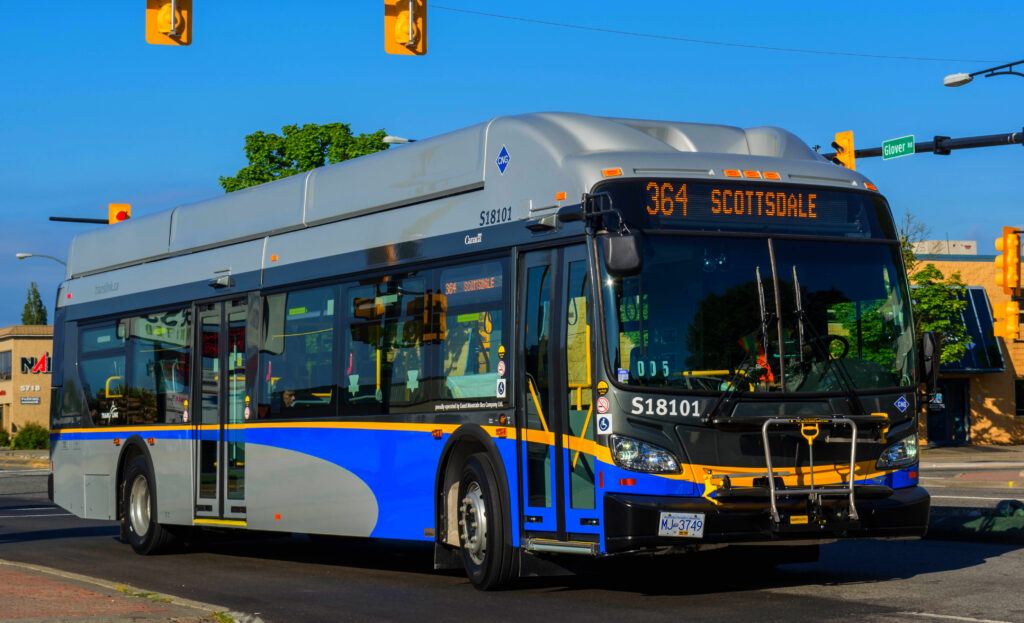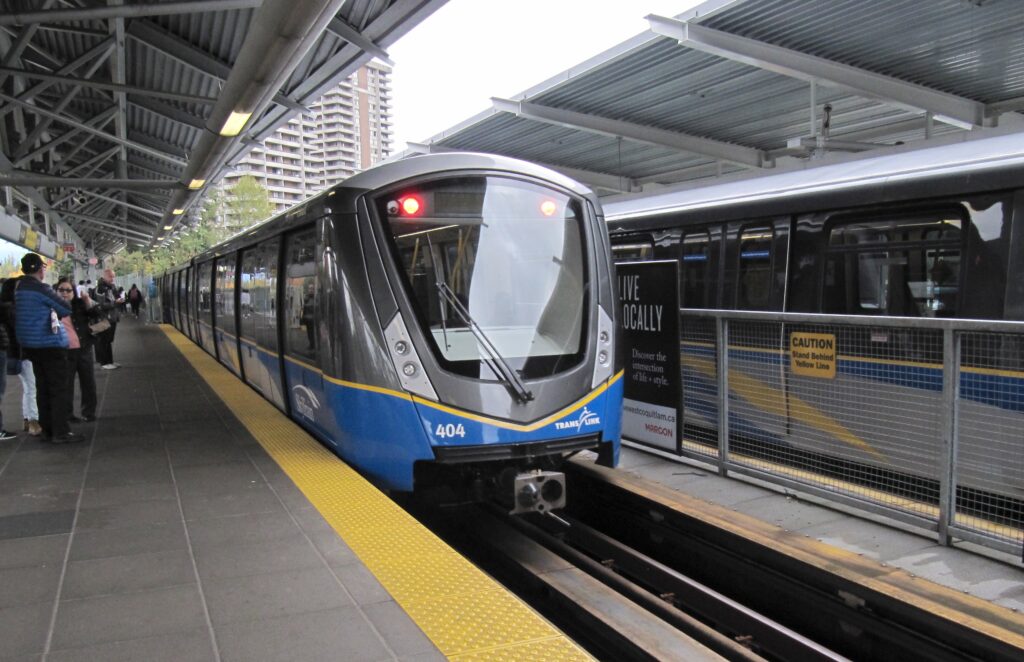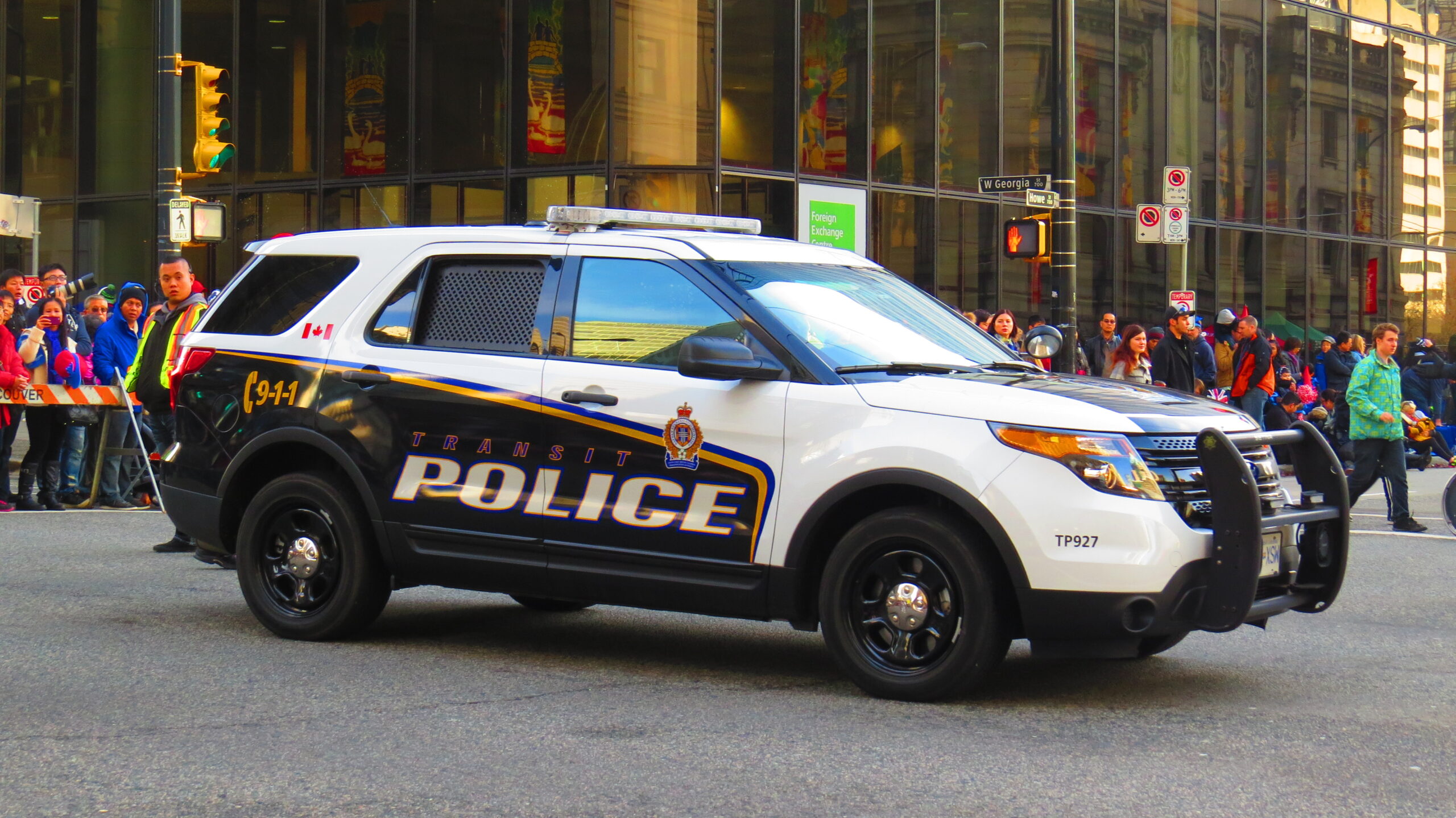In August of this year, TransLink, the Metro Vancouver agency responsible for the regional public transit system, declared a crackdown on “fare evasion” in the Lower Mainland. The crackdown comes on the heels of a fare increases in July, the fourth 2.3% increase since 2021, amounting to an increase of nearly 10% in the cost of transit since the beginning of 2021.
Since then, the Metro Vancouver Transit Police have been handing out 173-dollar tickets to riders who are already struggling to keep up with the recent wave of fare hikes. Transit fares are slated to increase more drastically in the coming years.
The TransLink board of directors and the B.C. provincial government are currently working to privatize the public transit service in Metro Vancouver. They are increasingly contracting work out to split transport unions, raising fares and choosing to spend billions to expand the Skytrain system.
This allows land in the neighbourhoods along the route to be sold off to property developers instead of funding the overburdened bus network used by hundreds of thousands of working-class riders every day.
The North Star spoke to workers at transit hubs across the system, asking them what they thought about the recent fare increases and Translink’s crackdown on fare evasion.
Richie, a 56-year-old sheet metal worker, expressed his overall dissatisfaction with the management and reliability of the bus lines he relies on to get to work every day, stating that “one week, it was three out of five days, no shows.”
Richie takes three buses and a SkyTrain to get to his job site in North Vancouver from his home in Surrey: “I get up 4:45, out the door at 5:30. My first bus is supposed to be at 5:50, but I don’t know how many mornings it arrived at 6 o’clock. Now you get to Scottsdale, and now you’re a half hour behind. You end up 20 minutes late for work.”
“If your [scheduled bus] is late, now you cost me money,” he continues, “you cost me another $3.55 [because the time for transfer has expired]. It may sound like peanuts, but now multiply that by five for the week, multiply that by 4 for the month, multiply that by 12 for the year, it’s a lot of money.”

A 21-year-old steel framing and construction worker spoke to the context in which these fare hikes come and the methods workers are using to get by: “Everything is getting more expensive in the city.” He says the high cost of transit is just piling on to the list of monthly bills for workers and reports using the equivalent of 11 hours of his wages just to pay for transportation each month.
He described a workaround that many people he knew were resorting to just to get by: “Adults will buy the orange Compass card just to pay less, because who wants to pay $200 a month for three zones?”
The orange fare cards are designated for minors who pay a lower fare across the transit system. “Compass” is the name of the fare system used by Translink, whose operation is contracted out to the American multinational Cubic Corporation.
Ethan, a 21-year-old student, called out the people he feels are at the root of the issues in the public service: “If [the TransLink Board] are making the money that they are, I don’t think a single one of them uses the bus. They probably all have nice Teslas.”
The Translink Board of Directors are appointed from a shortlist put together by a screening panel made up of representatives from five oligarchic organizations in B.C.: The Vancouver Board of Trade, Chartered Accountants of B.C., the Greater Vancouver Gateway Council, British Columbia’s Minister of Transportation and Infrastructure, and the Mayors’ Council.
“If it was an elected thing,” says Ethan, “that would go a long way in the direction of being a public service, as opposed to a privatized thing.”
He continues: “I’m guessing for [the TransLink Board], they just care more about profit, which is also probably another reason why they’re investing so much into the transit police. Because if all you care about is profit, any little thing that pulls away at your potential profit, you’re gonna view as a threat.”
The North Star reached out to Translink for comment on the costs and outcomes of the crackdown, but they did not respond.

The increases in fares and the expansion of enforcement through the Transit Police are just two elements in the most recent wave of attempts at further privatization of the transit system in the Lower Mainland. Privatization shifts the financial burden from public coffers to individual users and creates avenues of profitability for private corporations, mainly achieved through contracting work out.
Over the last few decades, the public service has seen the implementation of expensive fare gates to create “fare paid” zones on the SkyTrain system, the establishment of a specialized force to police it with an annual budget of $50 million, and attempts to shift operational costs from federal and provincial funding to transit users covering the majority through fares.
The Board of Directors continue to move in the opposite direction of the recommendations from Translink’s own fare review survey completed in 2016. This survey showed that 56% of riders did not want fares to cover a higher share of transit costs.
Translink has allocated billions of dollars over the past few years towards astronomically expensive expansions of the SkyTrain system along the Broadway corridor and the Surrey-Langley SkyTrain extension. The company is using the extensions to cozy up to big developers that will benefit greatly from the mass-upzoning that comes with them.
These expansions of SkyTrain have taken precedence over investment in the already overcrowded and often unreliable bus network. It is the bus network, not SkyTrain, that moves a majority of the working-class ridership on a daily basis, especially in the suburbs outside the city of Vancouver itself.
The Board of Directors and Translink have also caught the ire of fed-up transit workers, who are being squeezed by the subcontracting and the divide-and-rule tactics employed by the transit agency. Translink divides transit workers in the same regional system along sectoral and municipal boundaries. The board separates bus drivers from SkyTrain and Seabus operators by contracting out operations to different private corporations and multinationals.
Recently, employees of Translink’s HandyDART paratransit service in Vancouver went on strike for the same wage as their counterparts in the Fraser Valley, who were being paid $6 per hour more, with the only difference being which shell company they were working for.
Drastic fare hikes are on the horizon in the coming years, with another 7% increase between now and 2026 and a 21% increase by 2033.
